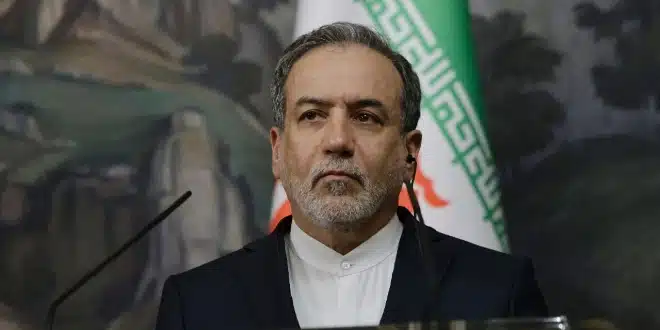A renewed effort to salvage diplomatic momentum around Iran’s nuclear ambitions got underway Friday, as Iranian officials met with envoys from the United Kingdom, France, and Germany—collectively known as the E3—at Iran’s consulate in Istanbul.
This marks the first formal round of discussions since the violent escalation between Iran and Israel in June, which also involved U.S. airstrikes on Iranian nuclear infrastructure.
The discussions aim to explore whether there’s a path forward that avoids the reactivation of economic sanctions originally lifted under the 2015 nuclear accord. That deal, formally known as the Joint Comprehensive Plan of Action (JCPOA), had restricted Iran’s nuclear activities in exchange for economic relief—but has been under severe strain since the United States unilaterally exited the agreement in 2018 under then-President Donald Trump.
Potential Snapback Sanctions and Diplomatic Conditions
A central focus of the Istanbul talks is the possible reimplementation of sanctions through the JCPOA’s “snapback” mechanism, which allows for the restoration of punitive measures if Iran is deemed noncompliant. A European diplomat, speaking anonymously, confirmed that snapback remains “on the table” but added that any move could be delayed if Iran re-engages diplomatically and resumes full transparency with the International Atomic Energy Agency (IAEA).
To avoid renewed sanctions, Iran would need to recommit to inspections and provide credible assurances about its uranium enrichment, particularly the rapidly growing stockpile enriched to 60%—a level alarmingly close to weapons-grade.
European leaders have signaled that without clear progress, they intend to reinstate sanctions by the end of August. The timeline adds pressure on Tehran to shift course swiftly if it wants to avoid further isolation.
Iran’s Stance: Distrust and Defiance
Iranian Deputy Foreign Minister Kazem Gharibabadi has indicated that Tehran’s participation hinges on foundational issues, particularly rebuilding trust—specifically with the U.S. “Iran has absolutely no trust in the United States,” Gharibabadi emphasized in a Thursday social media post. He added that the talks should not serve as a pretext for hidden agendas, particularly military strikes.
Gharibabadi also reaffirmed Iran’s position that its uranium enrichment is for peaceful purposes and aligned with its legitimate needs, calling for an end to all sanctions. In parallel, Iran has warned it may exit the Nuclear Nonproliferation Treaty altogether if penalties are reinstated—raising the stakes for global nonproliferation efforts.
Attending Friday’s discussions for Iran was Deputy Foreign Minister Majid Takht-e Ravanchi. While the exact identities of the E3 delegates remained undisclosed, sources indicated that the European Union’s deputy foreign policy chief likely took part. A similar dialogue had occurred in May, also in Istanbul.
Military Strikes, Retaliation, and Rising Regional Tensions
The diplomatic push follows June’s 12-day conflict between Iran and Israel, during which the U.S. deployed B-52 bombers in strikes against three Iranian nuclear-linked sites. In response, Iran launched missile attacks at Israel and targeted a U.S. military facility in Qatar, inflaming already fragile regional dynamics.
Foreign Minister Abbas Araghchi criticized the E3 for failing to fulfill their obligations under the JCPOA while simultaneously backing Israeli military actions. The accusations added another layer of mistrust to an already strained negotiation environment.
European nations maintain they are committed to diplomacy but have issued stark warnings: time is running out. Tehran, for its part, claims to still favor dialogue, although it has suspended certain forms of cooperation with the IAEA—a move that further complicates verification efforts.
Nuclear Stockpile Concerns and Iran’s Messaging
In May, the IAEA reported that Iran’s stockpile of uranium enriched to 60% had surpassed 400 kilograms—a figure significantly above what’s required for peaceful purposes and close to thresholds associated with weapons production. Western officials have cited this development as one of their chief concerns.
Speaking to Al Jazeera this week, Iranian President Masoud Pezeshkian reiterated that the country’s nuclear program would continue under international law and insisted Tehran does not seek nuclear arms. However, he warned that Iran is prepared for another war if necessary.
Meanwhile, a spokesperson for Iran’s Atomic Energy Organization pledged that the nation’s nuclear program would “grow back and thrive again” following the setbacks inflicted by Israeli and American strikes.
Outlook: Narrow Diplomatic Window
The path forward remains uncertain as both sides navigate deep-seated mistrust and diverging expectations. While the talks in Istanbul represent a rare opportunity to defuse tensions and possibly avert another escalation, the window for meaningful progress appears to be narrowing. European officials continue to push for reengagement and transparency, but Iran’s rhetoric and strategic moves suggest that compromise won’t come easily.


